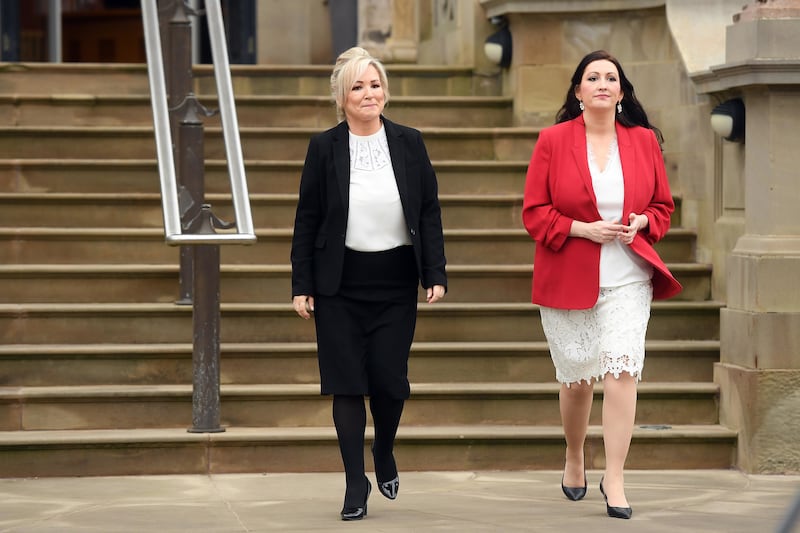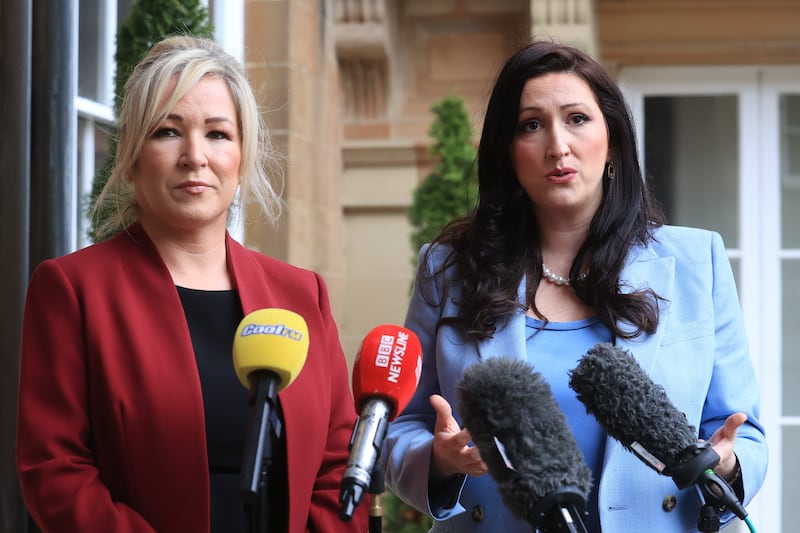It’s some 12 weeks since the Stormont institutions were restored following a two year DUP boycott. When Michelle O’Neill and Emma Little-Pengelly took up their roles as leaders of the executive in early February there was a sense of both relief and expectation.
In the time devolution was down, the north’s already ailing public services deteriorated further, while the economy continued to limp along, its under-performance in marked contrast to the sustained growth and quality jobs south of the border. The region’s roads were increasingly plagued by potholes, schools were operating hand-to-mouth, and hospital emergency departments were at breaking point.
To add to our already significant woes, Lough Neagh suffered an environmental catastrophe, the water in Ireland’s largest freshwater lake poisoned by years of unchecked pollution from agriculture and sewage.
- The NI Executive was supposed to ‘hit the ground running’. But after 12 weeks, what’s the plan? - The Irish News viewOpens in new window
- Executive challenged over worth of meetings with officials while Stormont was downOpens in new window
- Stormont ministers accused of ‘sitting on their hands’Opens in new window

But help was at hand. During the time the institutions were dormant we were regularly reminded that what we needed to tackle the mounting problems was a functioning assembly and executive.
Last year when the secretary of state imposed what was characterised as a “punishment budget”, we were told that the situation would be different if devolution was restored and a Stormont minister had control of the purse strings. We heard similar claims about reducing health service waiting lists, tackling child poverty, and redressing the north’s historic regional imbalance.
A devolved administration could also help accelerate the rebuilding of Casement Park and the implementation of long-awaited Irish language legislation, it was said.
In October, the then First Minister-designate Michelle O’Neill said on X that the public’s patience with the DUP boycott had “run out”.
“They expect and deserve all parties working together to tackle the challenges facing them today, and to deliver the best possible opportunities for them and their families to flourish in the future,” she said.
“The boycott of the assembly by one party must end now.”
It was sometimes noted that the current financial framework limited the options available to ministers but that re-establishing the executive would be the first step in addressing the crisis in funding public services - a crisis made even more glaring in recent days by Robin Swann’s dissent on the Stormont budget.
From the autumn of 2022 onwards, in order to ensure any restored administration ‘hit the ground running’, the parties held regular meetings with the head of the regional civil service Jayne Brady and other senior officials.
Yet in the three months since Stormont returned there has been a conspicuous lack of decisive action from the executive. We’ve had numerous non-binding, aspirational motions in the assembly but nothing concrete to address the pressing issues highlighted during those time-consuming assembly debates.
Requests to Stormont departments from The Irish News for an indication of each’s legislative programme for the remainder of this executive’s mandate has elicited little detail. Of those that bothered to answer, it seems only Robin Swann has been defined his legislative aims - though his timeframe is less clear.
The dithering over a budget can’t have helped but now that there’s a spending plan finally in place, it’s time for ministers to get down to business. Efforts to secure more funding from London will be supported but not when accompanied by an absence of legislation.
The longer the current situation drags on the emptier sounding the rhetoric about the necessity of devolution to solve our problems.








